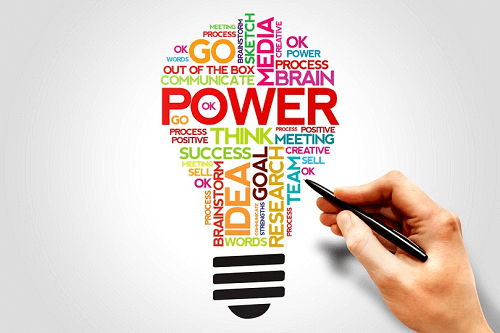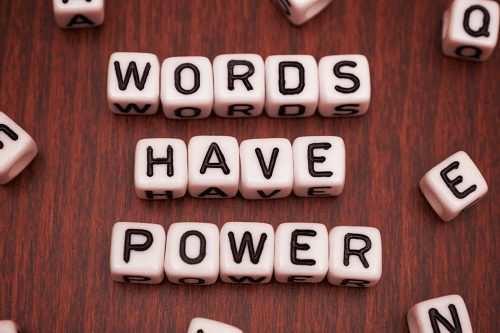Power Words: Writing the Perfect Meta Title & Description to Improve CTR.
 Power words are important in SEO. A lot of research has been conducted on what makes a good meta title and description. There are varying ideas on this matter.
Power words are important in SEO. A lot of research has been conducted on what makes a good meta title and description. There are varying ideas on this matter.
But there are two common characteristics that most researchers agree on which are: Emotion and Specificity.
Read this guide to learn why power words work and how to use them.
What Is a Power Word?
Power words have strong meaning and are used (in marketing) to trigger psychological and emotional responses.
These words are considered powerful because they are persuasive in nature and they push people to take action. The action could be to purchase a product, join an email list or click on the title on SERPs.
Emotion
Meta titles and descriptions that evoke emotion are said to gather more clicks than those that don’t. Moreover, the content also gets more shares from individuals on social media channels and websites.
Specificity
This means that the title and description are created with the target audience in mind. Many SEO experts write their meta title with the goal of making their audience feel like the content is written just for them only. That is why research has found that the word “you” is one of the most persuasive words used in marketing.
Where Can I Use Power Words?
Power Words are not limited to meta titles. They can also be used on different platforms for different reasons. For example:
- Email Marketing: In this case, the power words are used on subject lines to increase the open rate.
- Landing Pages: Power words are used in this instance to boost conversions on promoted products.
- Social Media: Power words help to attract users who are scrolling through their social media feeds.
- Content Marketing: These words play a big part in increasing CTR especially when used in meta tags and headlines.
The famous SEO specialist, Neil Patel also uses power words to garner such a huge following on the internet. If you analyse his landing page you will notice the use of various power words. For example:
Advanced: The use of this word shows the users that they are getting information from an expert.
Cheat Sheet: The phrase shows that the tips and tricks you’re getting on his site will be exclusive and won’t be found elsewhere.
Types of Power Words
Power words are categorised in many different ways, however, for the purpose of boosting CTR, there are only three categories that matter.
Seductive Power Words.
Seductive power words are said to be magical because they compel users to take action even if it’s irrational.
These words tend to override logical reasoning and make users do what you intend them to do. For example:
New
For most people “new” translates to “better.” It could be a new post, product or new course. The use of the word helps to attract the audience’s attention and keep it. Many big brands like Apple and Samsung use the word “new” in their advertising.
Free
In most cases, using the word “free” can get users to take action without a lot of convincing. Sometimes people will Ignore offers with better value just to receive the free reward. E-commerce websites use this power word a lot. For example:
Offer 1: $5 Lipstick + $1 Shipping.
Offer 2: $7 Lipstick + Free Shipping.
Another real-life example is Amazon, When Amazon introduced free shipping, France was excluded from the list of countries that could offer this reward. Instead, they lowered the shipping costs to 1 FRANC.
As a result, France did not see a dramatic boost in sales compared to other countries that offered shipping for free. Eventually, Amazon decided to offer free shipping in France and an increase in sales followed.
Because
Give people a reason for taking the action you want them to. For example, in 1977 a psychologist, Ellen Langer, conducted a copy machine study to gauge human behaviour. In this study, she intended to cut the line at the photocopy machine.
In order to conduct the experiment, she asked three questions:
- “Excuse me, I have five pages. May I use the Xerox Machine?” (60% of the people let her skip the line).
- “Excuse me, I have five pages. May I use the Xerox machine because I’m in a rush.” ((94% of the people let her cut the line).
- “Excuse me, I have five pages. May I use the Xerox machine because I have to make copies.” (93% of the people let her skip the line).
As you can see, giving a reason improved the probability of her skipping the line by 50%. What’s more interesting is that the reason did not matter as seen with the results of the third question.
How To
using “how to” power words can actually go a long way in improving CTR. People love gaining practical knowledge and may persuade them to take action and share your content.
Research has shown that “how-to” phrases are part of the top 20 retweeted phrases on Twitter. However, you need to actually deliver on the practical knowledge if you are going to promise it.
Emotional Power Words.
We may consider ourselves rational beings, however, psychological studies have proven that most people consider emotions when they take action than logic. In fact, John Berger, a psychologist, stated that curiosity leads people to share things.
Curiosity
When it comes to digital marketing, most websites enjoy inspiring curiosity in users because that usually compels them to click on the content. Buzzfeed and Upworthy use power words that evoke curiosity all the time.
Sensory Power Words (visual)
Sensory power words paint a picture in the user’s head. In fact, they help trigger a sensory response and make the user hear, see, taste and feel the words.
How you use these words makes them powerful. One example would be the words restaurants use to describe food.
Why Do Power Words Work?
Power words work because they tap into one or more of human desires. They also trigger an emotional response that compels users to click, especially if the words are specific to the user:
| Innate Desires | Learned Desires |
| 1. Survival, enjoying life, the extension of life |
|
| 2. Enjoying Food and beverages |
|
|
|
|
|
|
|
|
|
|
|
|
|
|




